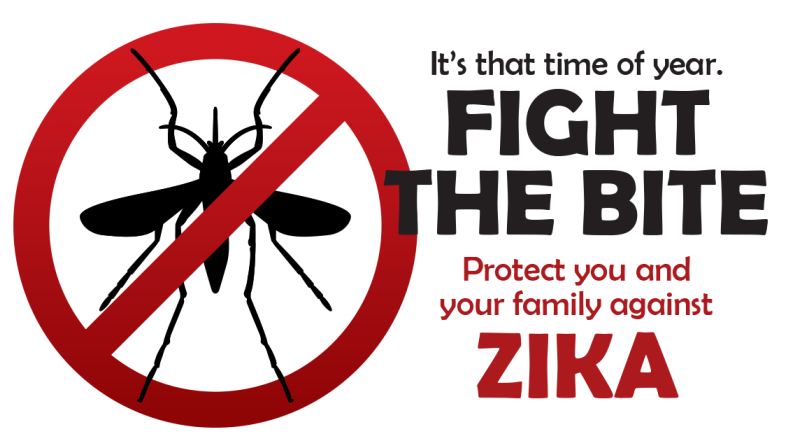County parks gear up for Zika
Upcoming Events
Related News

As large land managers, county parks departments take lead on fighting mosquitos, Zika
With the official start of summer and schools out, county parks are gearing up for their busy season. Playgrounds and parks will be teeming with visitors of all ages, frolicking in spray parks, kayaking on lakes and camping near streams.
One thing these activities have in common — water — also happens to be where mosquitos breed.
A recent National Recreation and Park Association (NRPA) survey found that one in four Americans plan to alter their outdoor activities this summer because of concerns about Zika-carrying mosquitos.
To access NRPA’s resources on Zika and parks, visit www.nrpa.org/zika.
That led Richard Dolesh, NRPA’s vice president for conservation, to wonder what, if anything, parks across the United States are doing differently to address public concerns. County News spoke with him after a recent NRPA webinar on Zika and parks. The association is a NACo affiliate.
“I made a few calls around to agencies in the Gulf states,” he said, “and asked are you ready for Zika? What is your level of awareness?” He was “shocked” by how “all-over-the-landscape” the answers were.
Seventy percent of park employees work outdoors at some point during the year, he said, and they can be essential in identifying potential mosquito-breeding sites.
The Occupational Health and Safety Administration has issued interim guidance for protecting outdoor workers from occupational exposure to Zika virus where it exists. Because the virus poses the greatest risk to pregnant women, the agency recommends that employers, if requested by an employee, consider reassigning anyone who is or may become pregnant, or who is male and has a sexual partner who is or may become pregnant, to indoor tasks to reduce their risk of mosquito bites.
The agency also suggests that employers provide insect repellents to outdoor workers and encourage their use.
Two county park officials who participated in the NRPA webinar — from Mecklenburg County, N.C. and Montgomery County, Md. — have detailed plans in place, should Zika-infected mosquitos be found in their communities.
Jai Cole, a natural resource manager for Montgomery County parks, and Chris Matthews, Mecklenburg County’s director of nature preserves and natural resources, shared their approaches.
Why should county parks be preparing?
In many jurisdictions, parks departments are the largest single landholder or manager, Dolesh said. Their facilities often include natural and artificial bodies of water such as lakes, ponds and streams. Some campgrounds have pit toilets and portable johns, which can contain standing water.
Janet McAllister, a CDC specialist in insect-borne diseases, allayed fears about those facilities, noting that Aedes aegypti, the mosquito species that can carry the disease, prefers to breed in cleaner water. “I would not expect to see them in that kind of polluted environment,” she said. “They do prefer cleaner water than the Culex do.” The Culex, commonly known as the southern house mosquito, has not been found to transmit Zika virus.
Cole said aerial spraying is not recommended because it can kill “beneficial” insects like honeybees. Plus, spraying “in some instances results in about 10 percent kill” of the disease-carrying mosquitos.
One questioner wondered about bioswales “that are not draining well that run for a mile along the length of a bike trail.” McAllister said swales also aren’t an attractive water source for Zika-bearing mosquitos — especially if they hold water long enough to breed natural mosquito predators such as dragonflies, fish and frogs, which feed on mosquito eggs and larvae.
“I’ve already gotten calls as the nature preserves guy that they’re concerned about the wetlands in my nature preserve,” Matthews said. In general, they needn’t be. Aedes aegypti, the primary Zika vector, prefers to lay its eggs in manmade containers of standing water — not moving or flowing water — that are prone to dry out, he said.
Storm water management facilities typically don’t promote excessive mosquito populations because they drain water within a week or less (a shorter period of time than eggs need to mature to adult mosquitos), contain moving water and are breeding sites for mosquito predators.
With regard to park employees, Dolesh said 70 percent of employees work outdoors at some point during the year, and they can be essential in identifying and draining standing water. Train park operations and office staff to be on the lookout for potential mosquito habitat at nature centers, community centers and camps, Cole said.
McAllister said there’s “no predictability” about where a locally transmitted Zika infection might first occur. The areas of greatest concern are the southernmost parts of Texas and Florida. “Places where local dengue transmission has occurred in the past, so those are the areas, we think, where Zika might occur.”
But though the risk elsewhere is lower, she noted that in 2013 there was local transmission of dengue documented in New York, on Long Island.
One county's Zika preparations
Montgomery County, Md.’s parks department has mounted an extensive informational campaign to address the possibility of a locally acquired Zika virus infection.
Were one to occur, Jai Cole, natural resource manager for the county’s parks, anticipates a barrage of inquiries from the public.
“In my experience, you can’t fight hysteria with science,” she said.“You have to get the facts out first before the hysteria hits, or you’re a bit dead in the water.”
The county has a task force with representatives from every county agency that could be affected by Zika, including health and human services, environmental protection, permitting services and the state’s department of agriculture. Zika information is posted on the county’s mosquito website, along with information about other mosquito issues.
Waiting in the wings, the county has created a “dark” website, not yet online, that can be activated immediately in the event of confirmed local Zika transmission. “We don’t want to be fumbling around with responses or creating a site if it happens, so we want to be prepared.”
The county’s Zika information can be found at www.montgomerycountymd.gov/mosquito.
Attachments
Related News

CMS requires state Medicaid suspension upon arrest versus termination
Effective January 1, 2026, federal law now requires states to suspend, rather than terminate, Medicaid coverage when an individual is incarcerated.

States submit Rural Health Transformation Program funding applications
On December 29, the Centers for Medicare & Medicaid Services (CMS) announced $50 billion in awards over 5 years to all 50 states under the Rural Health Transformation Program.

CMS issues new guidance on Medicaid Community Engagement Requirements
On December 8, the Centers for Medicare & Medicaid Services (CMS) released a Medicaid and CHIP Services Informational Bulletin (CIB) directing states on how to implement the Medicaid community engagement requirements enacted under Section 71119 of the One Big Beautiful Bill Act legislation (Public Law 119-21), or H.R. 1.